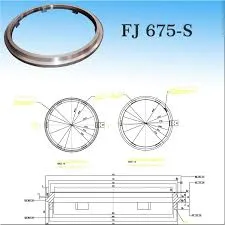- Afrikaans
- Albanian
- Amharic
- Arabic
- Armenian
- Azerbaijani
- Basque
- Belarusian
- Bengali
- Bosnian
- Bulgarian
- Catalan
- Cebuano
- China
- China (Taiwan)
- Corsican
- Croatian
- Czech
- Danish
- Dutch
- English
- Esperanto
- Estonian
- Finnish
- French
- Frisian
- Galician
- Georgian
- German
- Greek
- Gujarati
- Haitian Creole
- hausa
- hawaiian
- Hebrew
- Hindi
- Miao
- Hungarian
- Icelandic
- igbo
- Indonesian
- irish
- Italian
- Japanese
- Javanese
- Kannada
- kazakh
- Khmer
- Rwandese
- Korean
- Kurdish
- Kyrgyz
- Lao
- Latin
- Latvian
- Lithuanian
- Luxembourgish
- Macedonian
- Malgashi
- Malay
- Malayalam
- Maltese
- Maori
- Marathi
- Mongolian
- Myanmar
- Nepali
- Norwegian
- Norwegian
- Occitan
- Pashto
- Persian
- Polish
- Portuguese
- Punjabi
- Romanian
- Russian
- Samoan
- Scottish Gaelic
- Serbian
- Sesotho
- Shona
- Sindhi
- Sinhala
- Slovak
- Slovenian
- Somali
- Spanish
- Sundanese
- Swahili
- Swedish
- Tagalog
- Tajik
- Tamil
- Tatar
- Telugu
- Thai
- Turkish
- Turkmen
- Ukrainian
- Urdu
- Uighur
- Uzbek
- Vietnamese
- Welsh
- Bantu
- Yiddish
- Yoruba
- Zulu
Jul . 27, 2024 21:24 Back to list
Innovative Solutions for Precision Machining Manufacturing in Today’s Competitive Market Environment
Precision Machining Factories The Backbone of Modern Manufacturing
In today's rapidly evolving manufacturing landscape, precision machining factories stand out as critical players in producing high-quality components across various industries. From aerospace and automotive to medical devices and electronics, precision machining is integral to ensuring that products meet stringent quality standards and performance requirements. This article delves into the significance of precision machining factories, their operations, and the future of this vital sector.
At its core, precision machining involves the removal of material from a workpiece to achieve a desired shape, size, and finish. This process is critical when fabricating complex components that require exceptional accuracy and tight tolerances. Precision machining factories utilize advanced tools and technologies such as Computer Numerical Control (CNC) machines, lathes, and milling machines, allowing for high-speed production with minimal human intervention. These tools can produce intricate designs that would be impossible to achieve through traditional manufacturing methods.
One of the most critical advantages of precision machining is its ability to maintain consistency and repeatability in production. For instance, in the aerospace industry, even the slightest deviation in a component's dimensions can have catastrophic consequences. Precision machining ensures that each part manufactured meets the exact specifications required for optimal performance. This reliability is essential for manufacturers aiming to uphold their reputations and meet regulatory standards.
Furthermore, precision machining factories are characterized by their focus on quality control. Many factories employ rigorous quality assurance processes, utilizing state-of-the-art measuring equipment and techniques, such as coordinate measuring machines (CMM), to ensure that each component is machined to perfection. This commitment to quality not only reduces waste and rework but also enhances customer satisfaction, as clients receive products that meet or exceed their expectations.
precision machining factories

The role of skilled labor cannot be overlooked in precision machining factories. While automation and robotics have revolutionized many aspects of manufacturing, the expertise of trained machinists remains invaluable. These professionals possess the knowledge and experience required to operate complex machinery, troubleshoot issues, and implement process improvements. As the industry continues to evolve, ongoing training and education will be essential for the workforce to adapt to new technologies and techniques.
Looking to the future, precision machining factories are poised for significant advancements thanks to the integration of Industry 4.0 technologies. The Internet of Things (IoT), artificial intelligence (AI), and machine learning are beginning to reshape manufacturing processes, allowing for smarter factories that can monitor and adjust operations in real time. These innovations promise to enhance efficiency, reduce downtime, and enable predictive maintenance, thereby further optimizing production.
Moreover, as industries increasingly focus on sustainability, precision machining factories are also exploring eco-friendly practices. This includes reducing energy consumption, minimizing waste, and using sustainable materials. By adopting green manufacturing principles, precision machining factories can contribute to a more sustainable future while also satisfying the growing consumer demand for environmentally friendly products.
In conclusion, precision machining factories are fundamental to the modern manufacturing ecosystem. Their ability to produce high-quality, precise components is crucial for a wide range of industries that rely on sophisticated technology and rigorous standards. As advancements in automation, IoT, and sustainable practices continue to shape the sector, precision machining factories will undoubtedly play a pivotal role in driving innovation and efficiency in the manufacturing landscape. With a commitment to quality and continuous improvement, these factories will remain a cornerstone of industrial excellence for years to come.
-
Premium Cast Iron Water Main Pipe: Durable, Corrosion-Resistant
NewsAug.03,2025
-
Durable Cast Iron Water Mains | AI-Optimized Systems
NewsAug.02,2025
-
High-Efficiency Propane Boiler for Baseboard Heat | Save Energy
NewsAug.01,2025
-
Premium Source Suppliers for Various Gray Iron Castings
NewsJul.31,2025
-
Durable Cast Iron Water Main Pipes | Long-Lasting
NewsJul.31,2025
-
High-Quality Cast Iron Water Main Pipe for Durable Infrastructure
NewsJul.30,2025


